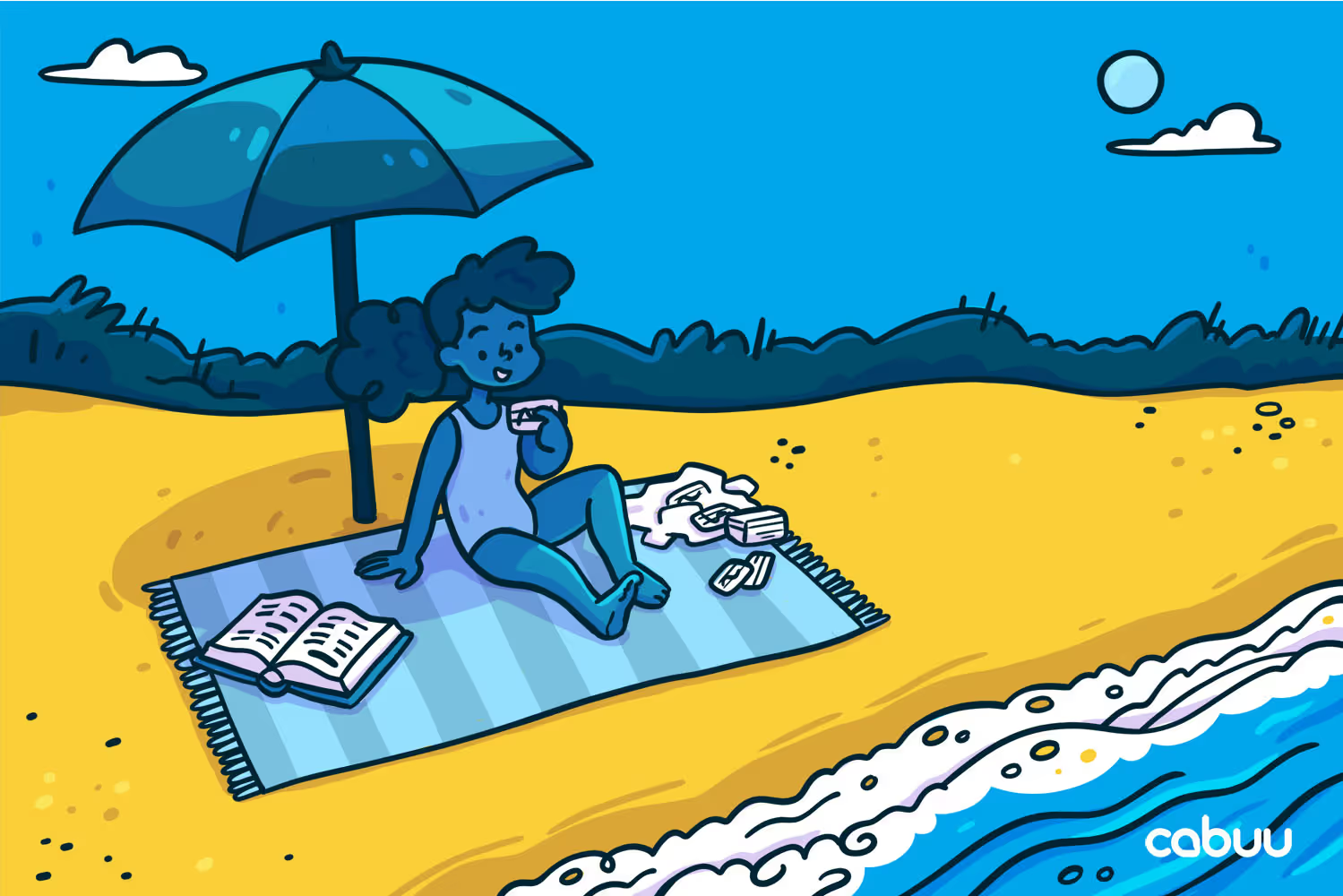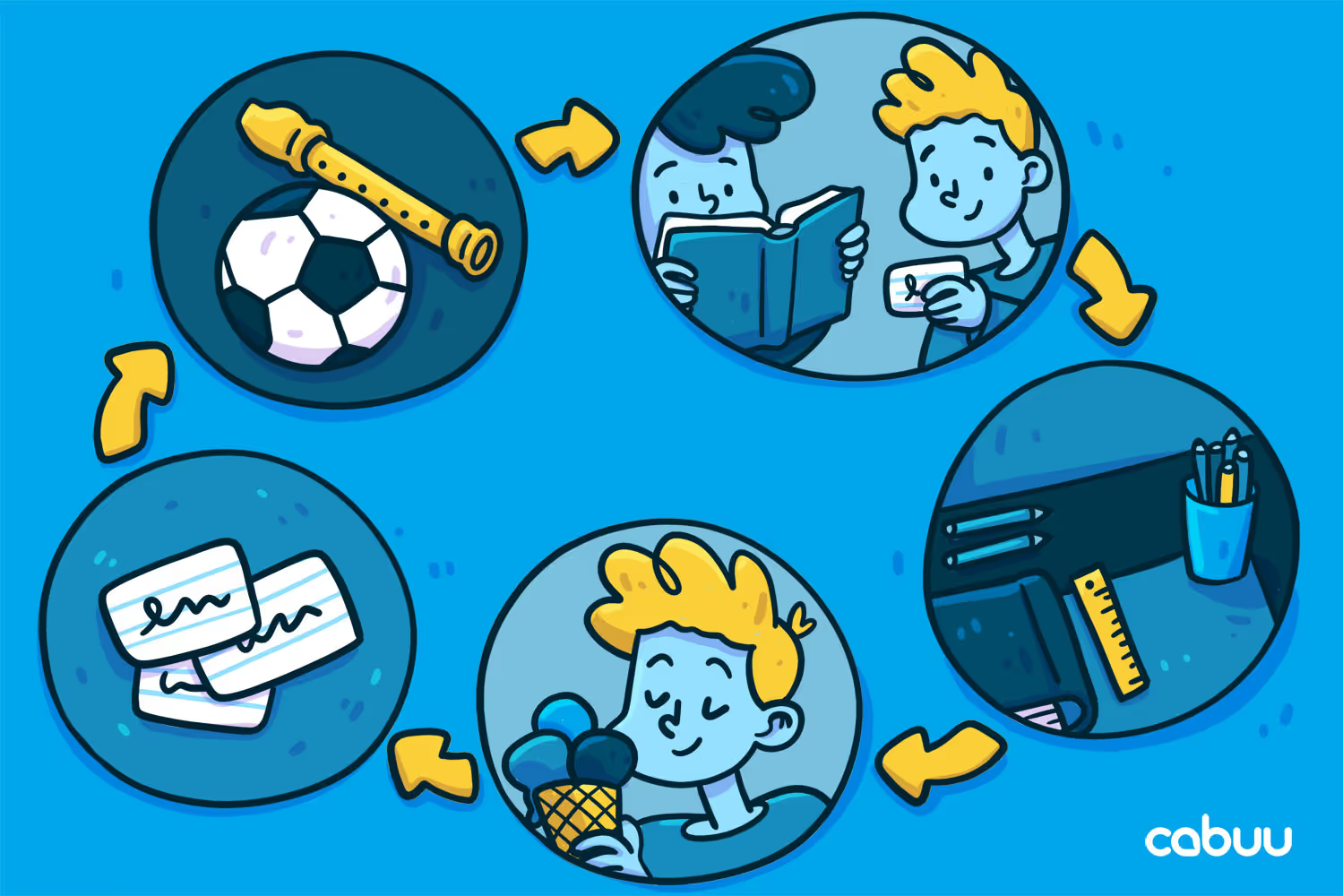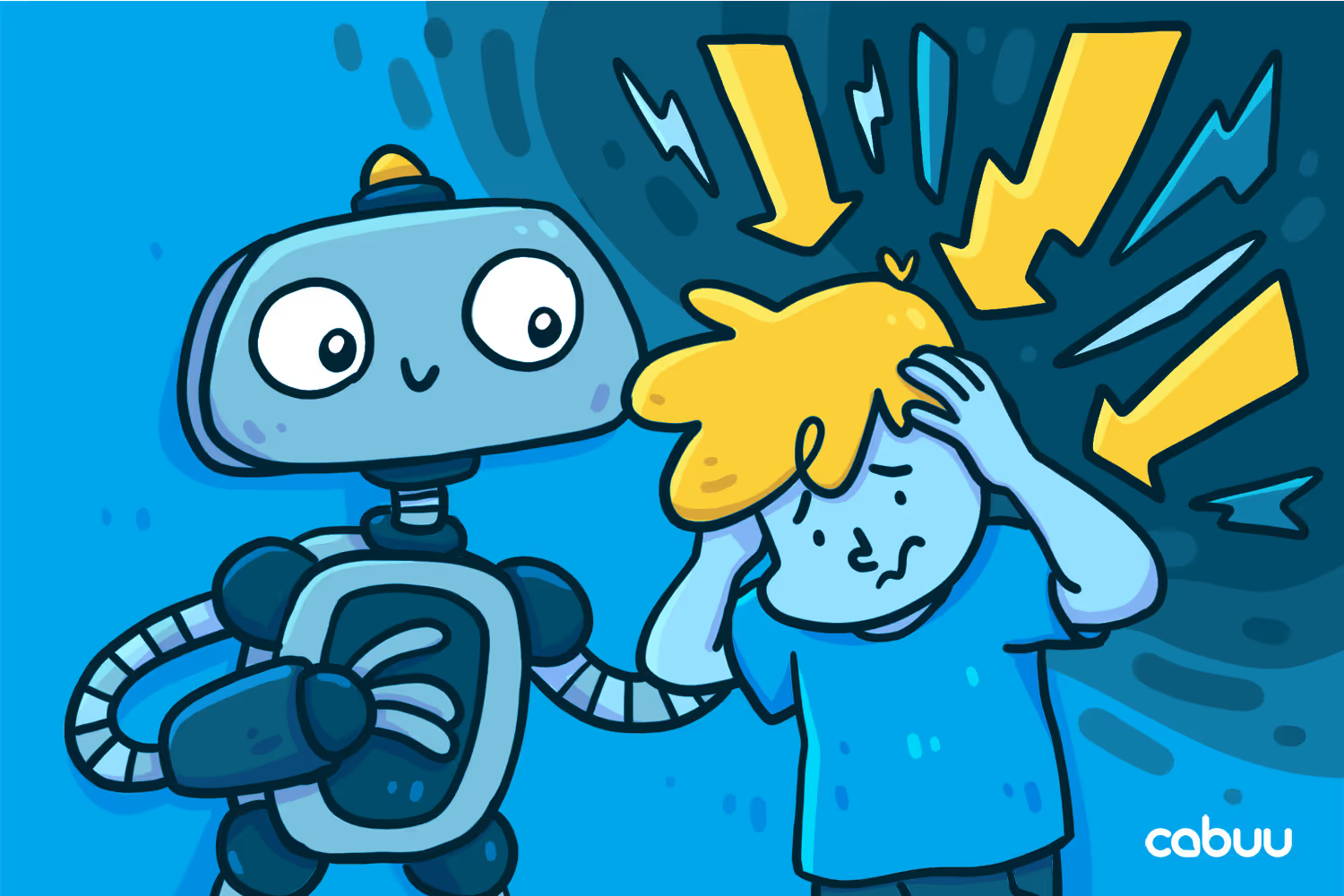Learning during the holidays

Entspannt im Urlaub lernen mit cabuu
Summer holidays are just around the corner and therefore a break from everyday school life. Many people then ask themselves the question: Does it make sense to study during the holidays? Is it more important to allow children to relax or to plan further learning sessions? First of all: this decision is highly individual, which is why we only offer you and your child inspiration here. The most important thing is always: The child should not overwhelmed and the focus is on relaxation and leisure.
When does learning during summer vacation make sense?
- Closing knowledge gaps: If difficulties have arisen in certain subjects during the school year and there are major gaps in knowledge, summer holidays can be a good opportunity to fill these gaps. This can also be the case, for example, if the child Funding requirements has and would otherwise forget everything you have learned again during the holidays.
- Preparation for the upcoming school year: Students can sign up for a Develop an advantageby familiarizing themselves with the topics and content of the next school year. This makes it easier to get started and strengthens self-confidence. Again, this case only makes sense if the child is motivated to do so or a Advantage really benefits would offer.
- Voluntary continuing education: The summer holidays offer the opportunity to work more intensively with own hobbies and interests to employ. Whether it's learning a new language, deepening math skills, or developing creative skills, the holiday season can be used to personal goals to track. If your child is particularly eager to learn or is under school year little time for personal interests has, that could be promoted during the holidays.
- Entrance exams or competitions: If entrance exams for secondary schools or universities are pending or you want to take part in competitions, the summer holidays are ideal for specifically preparing for them and improving your chances.
💡 During the holidays, enough must be Time for friends, family and personal hobbies Stay to relax and unwind. One Balancing learning and relaxation is very important: Because the school year alone is stressful enough. If your child seems very exhausted from the school year, forcing them to study is not a good idea.
How much should you learn during the holidays?
Let's say you've decided to complete a few learning units during the holidays: How much can you expect the child to do? Of course, this is also an individual question that depends on your situation. Stay in touch with your child and see how they are doing.
Our tips:
- Realistic learning objectives Set and don't overwhelm.
- Learn regularly and in a structured way: For example, take on a fixed number of hours or chapters per day or week.
- Try this”A sense of leisure“to maintain. Die Learning units Should rather shortly be and limit yourself to the essentials.
- Breaks and free time Plan to relax and recharge your batteries.
- It's best to also plan one longer period During the holidays where nothing is learned at all. Such a recovery phase helps to regenerate before the start of school.
- Empower your child with praise and reconnaissancewhen you have completed a learning session. A reward can be a nice joint activity or positive words about learning progress.

Contra: What's wrong with studying during the holidays?
Studying during the holidays is an additional stress factor: If your school year was already stressful anyway, it may also be better to focus on relaxation.
- Rest and relaxation: Summer vacation is a time when your child has the only (longer) opportunity to really relax, reduce stress and recharge your batteries. Learning can be a certain burden and recovery can be jeopardized as a result.
- Time for leisure activities: What could be better than finally having time for family and friends to try out new hobbies, travel and pursue your own interests? Your child needs the space and time to have these experiences and to develop in other ways that have nothing (or less) to the school material.
- Balance: It is important to have a good balance between school and leisure time. The holiday season makes it possible to disconnect from everyday school life and to cultivate other aspects of life, whether it's sports, art, music or simply playing and relaxing.
- Motivation and burnout prevention: If your child studies intensively throughout the year and doesn't have enough break, this can lead to fatigue, loss of motivation, and even burnout. By consciously taking time to recover and regenerate, motivation and learning enthusiasm for the coming school year can be “recharged”.
💡 Every child is different: It can also be an advantage to actually spend the holiday season just for relaxation and to take advantage of leisure activities afterwards with new energy and motivation to start the next school year.
Is homework actually allowed during the holidays?
In most countries and school systems, there are no uniform regulation On the subject of homework during the holidays. It can therefore vary from school to school as to whether homework is allowed during the holidays or not. In some schools and federal states, homework is completely prohibited during the holidays in order to give students a relaxing and stress-free time. Other schools allow homework during the holidays, but on a limited basis, such as a specific number of volunteer assignments or within a limited time frame.

10 tips for studying with your child during the holidays
Summer vacation is a time for your child to relax and switch off from school stress. However, it can also be a good opportunity to close learning gaps and prepare for the upcoming school year. Here are 10 tips that can help you do just that:
1. Set realistic goals: Together with your child, think about what you want to achieve during the holidays and set yourself realistic goals. Make sure your child not to overwhelm, but promote learning in small steps.
2. Find a learning routine: Help your child find a fixed learning routine. Consider together when and for how long it is best to learn.
3. Use free time: Learning doesn't always have to be boring. Use the holiday season to give your child the opportunity to To learn something new or a hobby try it out.
4. Combine activities with learning: Combine activities such as traveling or trips with learning. Denn Learning doesn't have to feel like learning! For example, visit museums or historical sites to expand your child's knowledge — provided that your child is interested in doing so.
😴 Learn vocabulary while you sleep: This is how a good night's sleep helps you learn
5. Learn together with friends: Encourage your child to arrange to learn together with friends. This allows them to motivate each other while having fun.
6. Use different learning methods: Help your child try out different learning methods to learn more varied and interesting to design. For example, learning with flash cards, mind maps, quiz games, or apps.
7. Clean up first: Create a separate study area for your child where they can focus on learning. A nice and tidy workplace helps improve concentration.
8. Take breaks: Breaks are important in order to be able to concentrate on learning. Make sure that your child regular breaks does and recuperates.
9. Reward: Reward your child when they have achieved their learning goals. For example, buy him something nice or offer him an activity that he enjoys.
10. Have fun: Ideally, learning should also be fun. Try to convey learning as an opportunity to develop and expand knowledge. Especially during the holidays, learning shouldn't feel unnecessarily difficult and stressful.
Don't be too strict, use the summer vacation as an opportunity to learning without stress (if necessary). If you follow these tips, you will hopefully start the new school year feeling refreshed and well prepared. We wish you a wonderful holiday season!
Bonus tip: with the Cabuu app You learn your vocabulary in a relaxed yet effective way.
💡 You might also be interested in this → Learning vocabulary and ADHD: 10 tips and strategies for successful and concentrated learning



